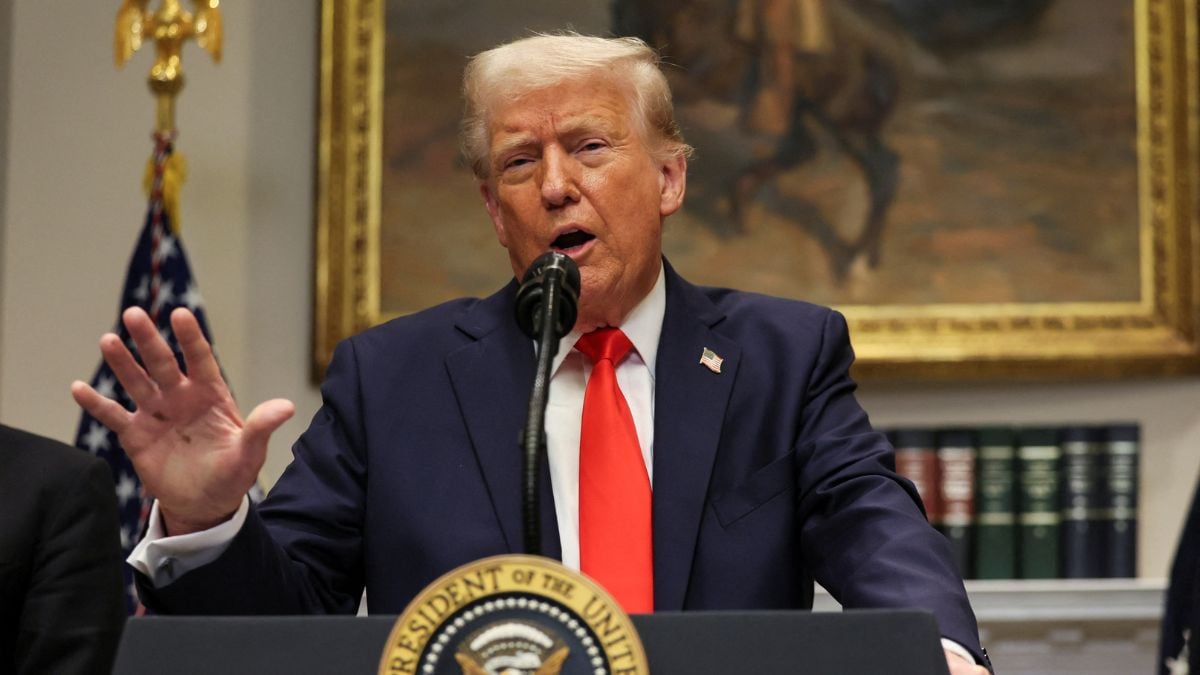American commitment to European security has come under threat in the wake of Donald Trump’s re-entry into the American White House. Since 1949, the United States has been the guarantor of European security, and its commitment under the North Atlantic Treaty Organisation (NATO) has been regarded as foolproof until recently. NATO under American leadership protected Western Europe throughout the Cold War years and protected almost the whole of Europe after the Soviet collapse and with the eastward expansion of NATO.
During the first Trump administration, NATO members felt insecure when President Donald Trump showed less interest in the transatlantic alliance, complained that the NATO member countries were not spending enough on defence, demanded increased defence expenditure by the European members of NATO and even threatened that the US would not come to rescue member countries threatened by Russia unless they spent more on defence. His successor, President Joe Biden, restored European confidence in the US commitment under NATO to European security and, in fact, led the efforts of NATO to back Ukraine against the Russian attacks with military assistance, economic aid, diplomatic support and heavy sanctions against Russia. Comes the second Trump administration, and all the efforts by the Joe Biden administration have been jettisoned to protect Ukraine, punish Russia and strengthen NATO.

President Trump has given his full support to end the war in Ukraine and does not consider Russia a threat, making approaches to establish détente with Moscow, and all these can be considered laudable goals of diplomacy. Of course, Trump has no idealistic goals. He appears to be interested in Ukrainian natural resources, including rare earths and critical minerals, and by befriending Russia, he intends to focus more on the principal challenger to American hegemony, that is, the People’s Republic of China.
The European countries, however, feel the real pinch in such developments because they perceive a Russian threat to European security, and they feel that Russia will be emboldened further under a peace deal that probably would compromise Ukrainian sovereignty and territorial integrity. European countries do not want Ukraine to be defeated, but this hope is unlikely to materialise. European countries want Russia to pay a heavy price, but Trump’s approach, in their view, would not let it happen.
But what is considered a bigger threat to European security is Trump’s announcement of withdrawing about 10,000 US troops from Europe when the war in Ukraine is still going on. Secondly, Trump’s demand for more defence expenditure in the midst of high energy prices, rising unemployment, growing inflation and, on top of it, fear of recession puts additional pressure on Europe. Third, Trump’s imposition of a 25 per cent tariff on steel and aluminium and a 10 per cent tariff on other goods is already biting the European economies when the US president has raised the prospect of reciprocal tariffs.
Even as the EU was preparing to raise its tariff as a counter-measure, President Trump put off his proposal of reciprocal tariffs for 90 days. It was certainly a temporary relief, but not a lasting solution to Europe’s agony. The challenge to European security does not come alone from Trump’s financial pressures, such as more defence expenditure and high tariffs.
President Trump’s approach to resolution of the Ukraine war without consulting the European allies and holding parallel negotiations with Russia and Ukraine goes against the spirit of the transatlantic alliance. Secondly, President Trump has point-blank refused to lend support to any kind of deployment of forces for peacekeeping or ensuring compliance with the ceasefire agreement between the warring parties, which has added to Europe’s woes. Third, when the UK and France offered the proposal to station their forces in Ukraine, the Trump White House rejected their request to extend American air support.
Fourth, President Emmanuel Macron’s proposal offering France extended nuclear deterrence to Europe did not seem to have pleased Washington. On top of it all, President Trump’s expressed intention to somehow acquire Greenland appears to have unnerved the NATO allies of the United States. The fundamental reason for the creation of NATO was to protect the member states from any aggression or threat of attack on the basis of collective security.
No one visualised the relevance or consequences of a scenario when one of the member states of the organisation would seek to acquire territory under the direct or indirect control of another member state! Add to it Trump’s proposal to make Canada, another member state of NATO, the 51st state of the United States. The apprehensions in Europe on the Greenland issue have been palpable. Initially regarded as a fleeting thought of Trump, when it became more obvious that the American president was serious about it and the vice president paid a visit to Greenland, the European concerns became more acute.
Not many people believe that Trump would succeed in annexing Canada or acquiring Greenland, but such developments have undoubtedly generated mistrust in the alliance and weakened the resilience of the collective security organisation. The European leaders, on their part, initially tried to avoid confrontation with the Trump White House, sought to make compromises and called for serious negotiations as against unilateral American actions. But when it turned out to be fruitless, there were efforts to diplomatically maintain European unity, keep supporting Ukraine, develop European defence capabilities, including arms build-up, come up with a united approach to deal with the US, search alternative sources to diversify trade and investment relations, reach out to China and India, and even coordinate tariff policies with that of Japan and South Korea.
It is, however, not the time for a transatlantic divorce. Europe is as important to the US as the US is to Europe. But a new trend in the transatlantic seems to have started, and a change in the course of this relationship is inevitable.
The French desire to achieve strategic autonomy, the German reaction to Trump’s policies and seeking a relatively independent approach from that of the US, and the crack in the Anglo-American ‘Special Relationship’ will all lead towards an effort that would aim at countering American unilateralism. Even if Trump were to change course yet again and restore normal ties with Europe and immediate compulsions were to sustain the transatlantic relations, the possibility of Trumpism having a longer life than the Trump 2.0 administration would compel Europe to work towards strategic autonomy, which has long been a mantra of Indian foreign policy.
The author is founding chairperson, Kalinga Institute of Indo-Pacific Studies, formerly Professor at JNU. The views expressed in the above piece are personal and solely those of the author. They do not necessarily reflect Firstpost’s views.
.
Politics

How Trumpism compels Europe towards strategic autonomy

The possibility of Trumpism having a longer life than the Trump 2.0 administration would compel Europe to work towards strategic autonomy















